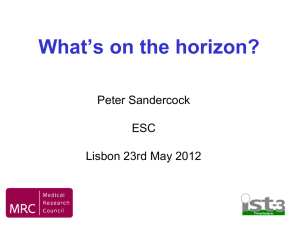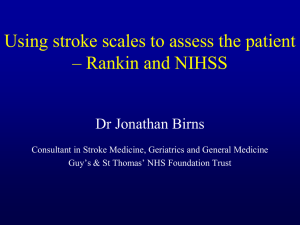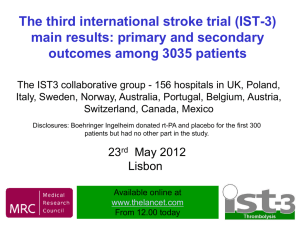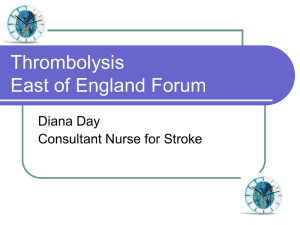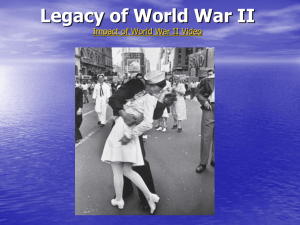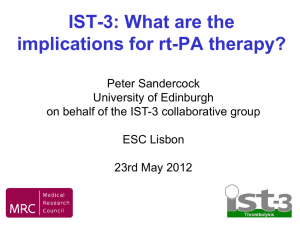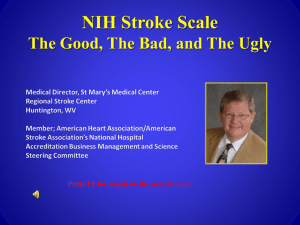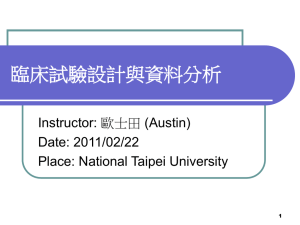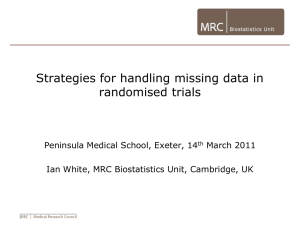Can patients be too mild, too severe or too old for thrombolysis?
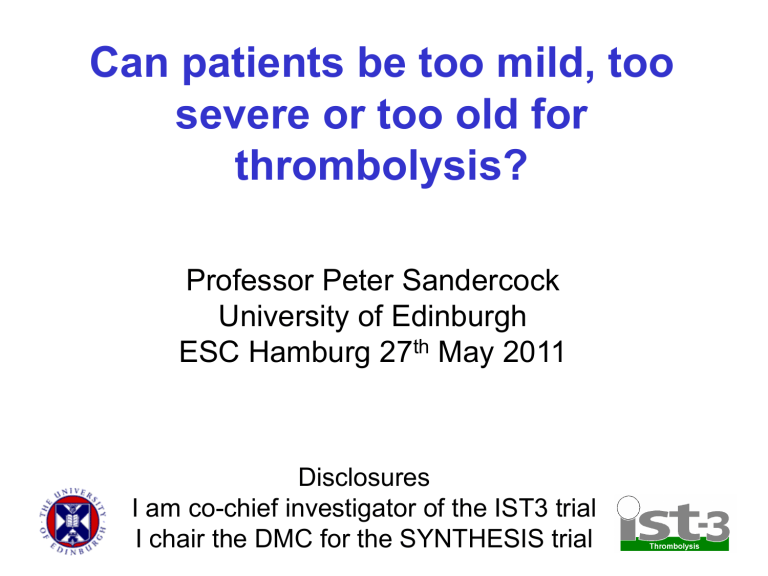
Can patients be too mild, too severe or too old for thrombolysis?
Professor Peter Sandercock
University of Edinburgh
ESC Hamburg 27 th May 2011
Disclosures
I am co-chief investigator of the IST3 trial
I chair the DMC for the SYNTHESIS trial
Outline
• ‘Opinion-’ or ‘evidence-based’ practice?
• ‘Routine’ iv thrombolysis, influence of
– age
– severity
• Evidence from randomised trials
– Meta-analyses
– Unanswered questions: current trials
‘Opinion-’ or ‘evidence-based’ practice?
• 15 million acute strokes/ year world wide -> we need RELIABLE evidence
• Expert opinion varies about whether to treat
– patients over 80 years
– Mild (NIHSS 0-5) / severe (NIHSS > 25)
• Routine practice varies between centres
• ‘Best evidence’ comes from randomised trials and systematic reviews of trials
Routine care: the older you are, the less likely you are to get rt-PA for stroke:
Germany (similar in USA)
10.0
9.0
8.0
7.0
6.0
5.0
4.0
3.0
2.0
1.0
0.0
25–34 35–44 45–54 55–64 65–74 75–84 85+ all
Age ages
F örch. Stroke 2009;40:1900-2
Randomised controlled trial
(RCT) evidence
Subgroup analyses:
What is the effect of age & NIHSS on response to iv rt-PA?
Trials need to be large!
…It is still not sufficiently widely appreciated just how large clinical trials need to be to detect reliably the sort of moderate, but important, differences in major outcomes’ that might exist (especially if effects in different subgroup are to be assessed reliably)’.
Collins, Lancet 2001; volume 357: 373
RCT’s of iv thrombolysis vs control in acute myocardial infarct (MI) and in acute stroke
Placebo-controlled trials of thrombolysis in acute MI
Total 1994 60,000
Placebo-controlled trials of thrombolysis in acute stroke
All agents (26 trials) 2009 7,100 rt-PA (11 trials) 2009 4,000*
*Largest stroke trial included just 800 patients
RCT data on only 67 patients aged >80
NINDS subgroups: effect of baseline NIHSS on likelihood of favourable outcome (mRS)
Ingall, T. J. et al. Stroke 2004;35:2418-2424
Non-randomised data: VISTA functional outcomes x baseline NIHSS
Mishra, N. K. et al. Stroke 2010;41:2612-2617
Conclusion?
• Very few mild and severe strokes included in randomised trials
• Effects in mild and severe strokes UNCLEAR
– NINDS
– Non-randomised VISTA database analysis
• European approval for iv rtPA excludes mild and severe strokes
• Pooled analysis of RCTs would be helpful…
Pooled analysis of 7 rt-PA trials (n= 3670)
Time to treatment and odds of ‘good outcome’ (mRS 0-1)
Lees et al Lancet 2010
Pooled analysis, authors conclusions:
• ‘We need to understand better the factors that prevent alteplase from being effective in individual patients… clinical variables e.g.: age, stroke severity, …
• ‘..these factors must have a role in the success of thrombolysis, but are poorly understood’
• No analyses were performed to assess effects of age / NIHSS on response to rtPA in specific subgroups
Lees et al Lancet 2010
Two views
• We already know who to treat: ‘There is no need to continue with randomised trials, we now can treat at any age, any severity and up to 4.5 hours (or even beyond)’
• The evidence is not as clear as some experts make out: ‘ We need randomised evidence on the effects in:
– people > 80yrs
– NIHSS 15, NHSS >25’
• Conclusion : We need both clinical experience and RCT evidence
Ongoing randomised trials iv rt-PA vs control
Trial name Age (y) Time from onset (h)
Imaging Sample size
EXTEND 18+ 3-9 400
TESPI 80+ 0-3
Mismatch
DWI/PWI
CT or MR
IST3 18+ 0-6 CT or MR*
600
150 to date
3100
PRISMS
Planned
18 0-6 CT or MR
NIHSS <6
1500
*CT, MR perfusion/angiography optional
Third International Stroke Trial.
A large randomised trial to answer the question: can a wider variety of patients be treated with iv thrombolytic therapy?
Main features of IST - 3
• Randomised, open, blinded outcomes study of i.v. rt-PA vs control,
• Target 3100 patients < 6 h of acute ischaemic stroke ( n=2902 by today)
• No age or severity exclusion criteria
• Primary outcome: the proportion of patients alive and independent at six months
• Randomisation by telephone or internet
• Imaging: CT or MR, perfusion/angio data if available.
• Blinded central review of all scans
Age
1000
800
600
400
200
0
18-50 51-60 61-70 71-80 81-90 91-100
80 years in study!
NIHSS
700
600
500
400
300
200
100
0
0 to 5 6 to 10 11 to 15 16 to 20 21 to 35
IST-3 will report its results at
ESC 2012 in Lisbon
Main results
• Primary outcome all cases 0-6h
Main subgroups
• Effect x time 0- 6h
• Effect x age
~ 1500 patients aged > 80 years).
• Effect x severity:
~ 600 with NIHSS < 5 (mild)
~ 400 with NIHSS > 24 (severe)
Conclusion: iv thrombolysis
• There is no reliable randomised trial evidence about optimum stroke severity or age limit for iv treatment
• Uncertainty about
– Age: how old is ‘too old’ ?
– Severity: too mild ? / too severe?
• Current trials (IST-3, TESPI, ?PRISM) will help resolve these uncertainties
Acknowledgements:
The patients, the >115 hospitals in the IST-3 group, who have recruited at least 1 patient, the Data
Monitoring Committee, the MRC Steering Committee,
Image reading panel, International Advisory Board,
Event adjudication panel

